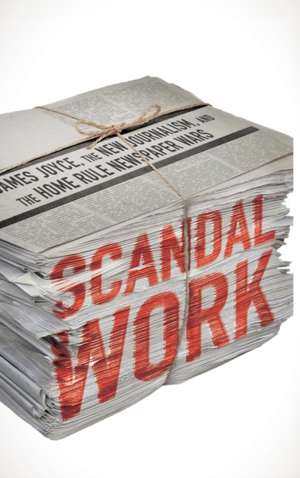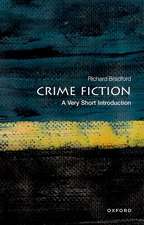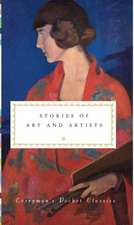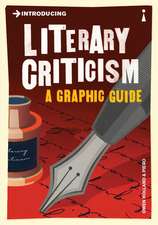Scandal Work – James Joyce, the New Journalism, and the Home Rule Newspaper Wars
Autor Margot Gayle Backusen Limba Engleză Hardback – 14 ian 2022
| Toate formatele și edițiile | Preț | Express |
|---|---|---|
| Paperback (1) | 292.67 lei 6-8 săpt. | |
| Wiley – 20 oct 2013 | 292.67 lei 6-8 săpt. | |
| Hardback (1) | 695.82 lei 6-8 săpt. | |
| MR – University of Notre Dame Press – 14 ian 2022 | 695.82 lei 6-8 săpt. |
Preț: 695.82 lei
Preț vechi: 953.18 lei
-27% Nou
Puncte Express: 1044
Preț estimativ în valută:
133.16€ • 138.51$ • 109.93£
133.16€ • 138.51$ • 109.93£
Carte tipărită la comandă
Livrare economică 14-28 aprilie
Preluare comenzi: 021 569.72.76
Specificații
ISBN-13: 9780268204556
ISBN-10: 0268204551
Pagini: 324
Dimensiuni: 159 x 233 x 25 mm
Greutate: 0.6 kg
Editura: MR – University of Notre Dame Press
ISBN-10: 0268204551
Pagini: 324
Dimensiuni: 159 x 233 x 25 mm
Greutate: 0.6 kg
Editura: MR – University of Notre Dame Press
Descriere scurtă
Recenzii
"Scandal Work adds considerably to our knowledge of the heretofore unnoticed ripples from four or five turn-of-the-century sex scandals, capped by the Oscar Wilde trials. It is full of rich historical material and intelligent analysis. Margot Gayle Backus has produced an impressive piece of research: the scholarship is impeccable, tracing connections between previously unarticulated archives and bodies of knowledge, and producing significantly new readings of Joyce's texts." —Kevin J. H. Dettmar, W. M. Keck Professor of English, Pomona College
"This incisive, theoretically sophisticated study canvases the scandal-laden historical contexts of Joyce’s revolutionary work. In tracing the omnipresence of sensational events, such as the Phoenix Park murders and the trials of Parnell and Wilde, and of sexual transgressions in Joyce’s texts, Backus brilliantly contends that they at once revel in scandal and resist it. Intermarrying archival inquiry with psychoanalytic rigour, this thought-provoking investigation persuasively reveals the extent to which Joyce’s work eludes the insidious effects of a scandal-mongering modernity which it is also at pains to depict." —Anne Fogarty, Professor of James Joyce Studies, University College Dublin, Ireland
"In Scandal Work: James Joyce, the New Journalism, and the Home Rule Newspaper Wars, Margot Gayle Backus handles a fascinating topic with skill and insight. Backus treats the significance of scandal in relation not only to the work of James Joyce, but to the whole fin de siècle scene with respect to newspaper reportage, censorship, colonial politics, sexual mores, and their strategic functions in manipulating power in the social realm. Her book will be appreciated as a valuable addition to Joyce criticism and to Irish studies in general." —Margot Norris, Chancellor's Professor Emerita of English and Comparative Literature, University of California, Irvine
"This excellent study explores the intersection of newspaper journalism and literary production in Ireland at the end of the 19th century. Backus has written a thoughtful analysis of the early years of scandal journalism and, more particularly, the effects of this journalism on Irish politics and the writing career of writer James Joyce (A Portrait of the Artist as a Young Man)." —Library Journal
"Though this is primarily a work backgrounding and analyzing works of literature (particularly Ulysses), the author provides an important contribution to Irish studies through her insightful and rigorous exploration of the series of scandals." —Choice
“Margot Gayle Backus achieves an expert masterstroke in this study of fin de siècle newspaper scandals with application to works of James Joyce. With painstaking detail, she reports the Phoenix Park Murder, Dublin Castle, and Cleveland Street Scandals as well as information on the scandal figures Myles Joyce and Charles Dilke. . . . A major strength is the proliferation of Backus’s insightful ways of perceiving Joyce’s developmental theorizing about scandal and increasingly ingenious stylistic integration of those theories.” —Irish Literary Supplement
“Scandal Work provides close textual analysis of Joyce’s earliest writings up to Ulysses and thickens in a palimpsestic manner the political and gendered connotations of what scandal work might actually signify. The strength of Backus’s argument lies in her contention that Joyce increasingly recognized the journalistic coverage of scandal as the ultimate means to control and subvert artistic activity.”—breac: A Digital Journal of Irish Studies
“The book also contributes something new to the immense critical literature on Joyce, not just by tracing his lifelong attention to scandal journalism as a form of politically charged speech act, but also by adeptly demonstrating its importance to his own representations of sexual and national identities . . . it provides a richly detailed account of one of our most thoroughly studied modernist writers, which contributes something new to our understanding of his verbal art, not simply as an aesthetic form opposed to low or the commodified, but as an intricate example of communication and dissemination, a powerful, if elusive, instance of the art of mass persuasion.”—Journal of British Studies
"Backus considers the literary implications for the legal, social, and economic factors that led to an intense interest in the idea of sex scandal over the course of the Irish Home Rule debates during James Joyce's childhood. Excellent on libel laws and on newspapers and politics, this book's main virtue is that it provides significant new contexts for Joyce's writings in a lively, engaging, and thoughtful manner." —Irish University Review
“The book also contributes something new to the immense critical literature on Joyce, not just by tracing his lifelong attention to scandal journalism as a form of politically charged speech act, but also by adeptly demonstrating its importance to his own representations of sexual and national identities . . . it provides a richly detailed account of one of our most thoroughly studied modernist writers, which contributes something new to our understanding of his verbal art, not simply as an aesthetic form opposed to low or the commodified, but as an intricate example of communication and dissemination, a powerful, if elusive, instance of the art of mass persuasion.”—Journal of British Studies
"Backus considers the literary implications for the legal, social, and economic factors that led to an intense interest in the idea of sex scandal over the course of the Irish Home Rule debates during James Joyce's childhood. Excellent on libel laws and on newspapers and politics, this book's main virtue is that it provides significant new contexts for Joyce's writings in a lively, engaging, and thoughtful manner." —Irish University Review
“Scandal Work will appeal to Joyce scholars and to a more general audience. The first two chapters, which show that the New Journalism emerged out of a complex network of metropolitan and regional newspapers, are absolutely fascinating.” —James Joyce Broadsheet
“An engaged, communicative style and approach immediately mark out Margot Backus’s study of the role of journalistic and political scandal in the work of James Joyce as a fresh and winning contribution to the critical debate. . . To approach this material anew in terms of scandal itself . . . is acute and engaging in a way that few academic studies manage to be.”—Sharp News: Society for the History of Authorship, Reading, and Publishing
“The book presents a powerful reading of Joyce’s engagement with the culture of journalistic scandal at the fin-de-siècle.”—James Joyce Quarterly
“An engaged, communicative style and approach immediately mark out Margot Backus’s study of the role of journalistic and political scandal in the work of James Joyce as a fresh and winning contribution to the critical debate. . . To approach this material anew in terms of scandal itself . . . is acute and engaging in a way that few academic studies manage to be.”—Sharp News: Society for the History of Authorship, Reading, and Publishing
“The book presents a powerful reading of Joyce’s engagement with the culture of journalistic scandal at the fin-de-siècle.”—James Joyce Quarterly
Notă biografică
Margot Gayle Backus is associate professor of English at the University of Houston.











